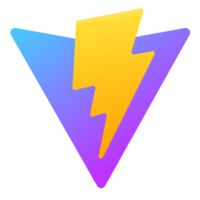Need advice about which tool to choose?Ask the StackShare community!
OData vs Prisma: What are the differences?
Introduction
In this article, we will compare and contrast OData and Prisma and highlight the key differences between them.
Support for Different Data Sources: OData is an open standard that allows interoperability between different systems and data sources. It allows data to be accessed and manipulated through standard HTTP protocols. On the other hand, Prisma is an open-source database toolkit that supports various databases such as MySQL, PostgreSQL, and SQLite. It allows developers to work with databases using a type-safe and auto-generated query API.
Query Language: OData provides a flexible query language called OData Query Language (OData URL conventions) that allows clients to filter, sort, and paginate data. It supports various query options such as $filter, $orderby, and $top. Prisma, on the other hand, uses its own query language called Prisma Query Language (PQL). PQL provides a rich set of features for creating complex queries and is optimized for database operations.
Schema Definition and Management: OData follows a metadata-driven approach, where the data model and schema are defined using the Entity Data Model (EDM) and are exposed through Service Metadata Document (EDMX). Prisma, on the other hand, uses a code-first approach, where the schema is defined using Prisma Schema files written in the Prisma Schema Definition Language (SDL). Prisma schema files define the data model and can be easily version-controlled and managed with Git.
Data Validation and CRUD Operations: OData provides built-in support for basic data validation and CRUD operations. It allows clients to create, read, update, and delete data using standard HTTP methods such as GET, POST, PUT, and DELETE. Prisma, on the other hand, provides a powerful query API with type safety, allowing developers to perform CRUD operations using a more intuitive and type-safe syntax. Prisma also provides support for advanced filtering, aggregation, and data manipulation operations.
Integration with Frameworks and Tools: OData has wide support and integration with various programming languages and frameworks, including .NET, Java, Node.js, and more. It provides OData libraries and tools for seamless integration with these frameworks. Prisma, on the other hand, is primarily focused on Node.js and TypeScript development. It provides TypeScript and JavaScript APIs for working with databases and integrates well with popular Node.js frameworks and tools like Express.js and Apollo Server.
Community and Ecosystem: OData has a well-established community and ecosystem with active contributors, forums, and documentation. It is widely adopted by various organizations and has extensive tooling support. Prisma, being a relatively newer technology, has a growing community and ecosystem. It has gained popularity for its developer-friendly features and performance optimizations.
In summary, OData and Prisma have different approaches to data access and management. While OData focuses on providing interoperability between different data sources and follows a metadata-driven approach, Prisma aims to simplify database access for developers using a code-first approach with a type-safe and auto-generated query API.
Pros of OData
- Patterns for paging, sorting, filtering7
- ISO Standard5
- Query Language4
- RESTful3
- No overfetching, no underfetching3
- Get many resources in a single request2
- Self-documenting2
- Batch requests2
- Bulk requests ("array upsert")2
- Ask for what you need, get exactly that2
- Evolve your API by following the compatibility rules1
- Resource model defines conventional operations1
- Resource Modification Language1
Pros of Prisma
- Type-safe database access12
- Open Source10
- Auto-generated query builder8
- Supports multible database systems6
- Increases confidence during development6
- Built specifically for Postgres and TypeScript4
- Productive application development4
- Robust migrations system2
- Supports multible RDBMSs2
- CRUD1
Sign up to add or upvote prosMake informed product decisions
Cons of OData
- Overwhelming, no "baby steps" documentation1
Cons of Prisma
- Doesn't support downward/back migrations2
- Doesn't support JSONB1
- Do not support JSONB1
- Mutation of JSON is really confusing1
- Do not support JSONB1






































